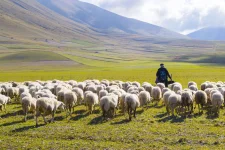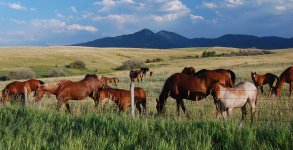Brandon Benton
Active member
- Messages
- 30
- Reaction score
- 3
- Gender
- Male
- Religion
- Islam
Being a shepherd is a Sunnah of the prophets, including Nabi Muhammad, salallahu alayhi wa salam. Rasul Allah, salallahu alayhi wa salam, worked as a shepherd before entering into trade. The Sunnah gives us ideas as to not only what is Halal, but also a tradition in Islam. We know as well from the Sunnah that Nabi Muhammad, salallahu alayhi wa salam, purchased a plot of land to build his first Masjid and home.
So, from the Sunnah we learn that investing in land is both a Halal and Sunnah investment. Furthermore, we know that tending to animals is also a Halal and Sunnah way to earn a living. Combining both Sunnahs, we find that purchasing a plot of land and raising animals on it is a Halal business and honest enterprise. Successful agricultural enterprise leads to lasting self-sufficiency as well as long-term growth and development.
Shaykh Amadou Bamba of Senegal established economically successful agricultural communities in order to uplift his people, providing economic self-sufficiency and independence in a time of occupation and oppression from the ruling government. Land ownership allows Muslims to develop agriculture, build their own homes on owned land, construct Masjids and other religious institutions such as Madrasas, and to be independent from non-Muslim landlords.
Additionally, Shariah financing provides the optimal path to land ownership for Muslims due to the prohibition of riba. In non-Muslim countries, banks will lend at interest and take very high amounts of interest due to the compounding nature of riba. For example, one can end up paying double the listing price for a fully built home worth thousands of dollars due to accrued interest over thirty years. Usury traps honest working people into a cycle of debt and dependence on immoral moneylenders.
Do not fall into the trap of riba and be enslaved by usurious debts, and do not gamble your hard earned savings on things such as stocks, cryptocurrencies, or even usurious investments like bonds and real estate trusts. These are not only sins, they are unwise and unsafe investments. Allah knows best. While investing in land is not the only Halal or Sunnah type of investment, it is a wise one. Agriculture is a solid and honest investment, and pastoralism is Sunnah. Sheeps, goats, horses, camels, cattle, llamas, and so on.


